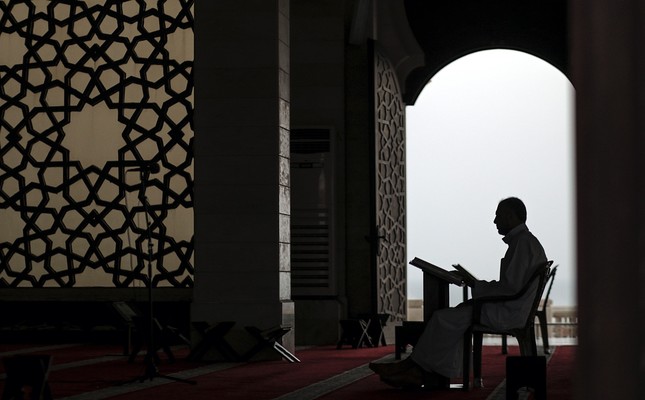
RNA - For Muslims, Ramadan is a time of closeness and togetherness. For me, the best time in Ramadan is after breaking my fast in the evening iftar meal, when I can relax with friends and relatives, enjoying some tea or coffee. Often caught up in the stream of everyday chaos, we usually do not have time for friends and family other than during Ramadan.
Ramadan is the ninth month in the Islamic lunar calendar. During this month, Muslims abstain from eating, drinking and smoking from daybreak to sunset. This renunciation helps reflection.
For Muslims, it is also a month of charity and good deeds. It is a time when we reflect on our mistakes and on how we deal with other people.
Almost 17 hours of fasting
Iftar is definitely one of the most important times of day for those who fast. After hours of waiting, families and friends gather round dining tables and wait until the call for evening prayers.
As soon as the call is heard, we are allowed to break our fast. Technically, Muslims are allowed to break their fast in the evening when a white thread becomes indistinguishable from a black one in natural light.
According to Prophet Muhammad's (Peace Be Upon Him) tradition, the fast should be broken with a date.
The tradition of Tarawih prayers
In Ramadan, prayers should - if possible - take place in the community mosque. In particular, the Tarawih prayer, which Prophet Muhammad (PBUH) encouraged Muslims to perform during Ramadan.
These rituals are also an important break from the hustle and bustle of everyday life.
For me, the most exciting thing about fasting in Germany is having iftar at mosques with family members, acquaintances and even German friends.
Fatih Mosque in Lindau on Lake Constance has been organizing a special Ramadan program for six years now. It erects two giant tents on the mosque's grounds and sets up benches for 500 people.
A chef from Turkey travels to Lindau for a whole month and prepares Turkish delicacies for iftar every day. Here, people break their fasts together, have tea and spend time with family members, friends and members of the community until the first light of the next day.
Iftar invitations
In the past, only Muslims would arrange iftar gatherings but that has changed in recent years. Hosts no longer include just mosque communities and Muslims in general; more and more people, enterprises, business associations, politicians and even churches now host people for iftar.
From Augsburg to Zell, mass iftar gatherings in squares and parks can now be seen everywhere in Germany. Different Islamic associations also organize joint iftar evenings, including the Turkish-Islamic Union for Religious Affairs (DİTİB), the Islamic Community of National Vision (IGMG) and the European Turkish Islamic Union (ATİB).
With the practice of breaking fast together in public, we want to express one thing above all: "We are part of this society; we are interested in contacts; and we create opportunities to get to know each other."
Eid al-Fitr in Germany
For Muslims in Germany, as for everywhere else in the world, Eid al-Fitr is a very important religious event. The three-day celebration marks the end of Ramadan. It is the second-most important holiday for Muslims after Eid al-Adha, which commemorates the willingness of Prophet Abraham to sacrifice his son Ishmael as an act of obedience to God.
Like all Islamic holidays, both follow the lunar calendar and shift from year to year.
German Muslims think of Ramadan as a time of solidarity with the global Islamic community. It is a shared phase of recollection, reflection and reconciliation.
Family celebration from 'near to far'
According to Daily Sabah, the first day of Eid al-Fitr begins with a morning prayer at the mosque, often attended only by men. In some countries, Muslims visit family members' graveyards after the mosque.
Later the family celebrations begin. During the three-day holiday, people visit their family and friends, beginning with close relatives before moving on to visit distant ones.
Feast of reconciliation and fellowship
Often, Eid al-Fitr is compared to the Christmas in Germany. It is not just because of the significance of the holiday but because children also receive gifts, often new clothes and sweets.
Meanwhile, the church visit on Christmas Eve also corresponds to the Islamic custom as "every mosque visitor in his most beautiful suit, beautiful shirt and most beautiful shoes comes to the mosque to attend the prayer on the first day of the holiday."
847/940